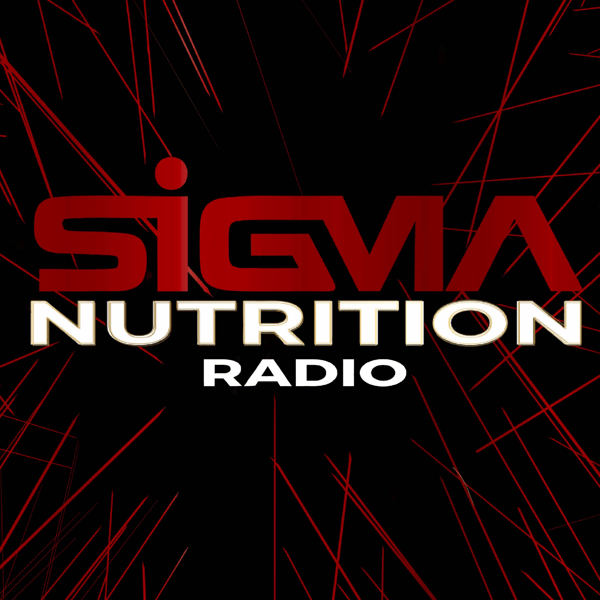SNR #256: Alex Leaf – Risks of High-Protein Diets?: Longevity, Gut Health & Microbiota
Sigma Nutrition Radio
Danny Lennon
4.8 • 626 Ratings
🗓️ 4 December 2018
⏱️ 63 minutes
🧾️ Download transcript
Summary
Alex holds a master’s degree in Nutrition from Bastyr University. He is a full-time researcher at Examine.com involved in updating the supplement database, editing ERD articles, and blogging about nutrition. Alex also teaches young minds about human nutrition and functional medicine at the University of Western States. He enjoys blending the scientific aspects of nutrition with the pragmatic realities of life to help others achieve their goals.
In This Episode We Discuss
- Potential controversies in how protein influences human health
- Hypothesis of protein restriction (and methionine restriction) benefitting longevity via impact on mTOR and AMPK
- Extrapolating animal data to humans: limits and conclusions
- Does protein restriction actually increase human lifespan?
- How do we balance the potential benefit of protein restriction with the known benefits of high-protein intakes for muscle mass and function?
- Are high-protein intakes detrimental for gut health and/or the gut microbiome?
- How other dietary components can mitigate the negative impacts of protein on gut health
- How cooking methods may influence the imapct of protein-rich foods on health
- Knowing the potential risks of a high-protein diet
- Cost:benefit analysis of protein intake
Support the podcast at: patreon.com/sigmanutrition
Transcript
Click on a timestamp to play from that location
| 0:00.0 | And so the question is, what are the long-term effects of a high-protein diet on gut health? |
| 0:14.0 | And how would this play into long-term health and how does a high-protein intake interact with other components of the diet? |
| 0:21.9 | This area, I would say, is an area where we have very, very strong mechanistic data to suggest |
| 0:32.5 | an effect. |
| 0:33.1 | And the questions that remain are, what is the extent of the effect when it comes to impacting |
| 0:40.3 | our help? |
| 0:41.3 | And is this effect even seen in a variety of scenarios? Hello and welcome. You are listening to Sigma Nutrition Radio, the podcast that aims to bring you the latest evidence-based information related to nutrition and human health. We're at episode |
| 1:13.5 | 256 of the podcast today and as ever I am your host, Danny Lennon. Thank you so much for |
| 1:21.4 | everyone for taking the time out to listen into the show again. We have a super interesting show |
| 1:27.3 | ahead, so I think you're really going |
| 1:29.7 | to enjoy this one. But just before we get into things, thank you to everyone who has mentioned |
| 1:35.5 | any kind words about last week's episode. So episode 255 with Alan Flanagan has gone down |
| 1:42.9 | extremely well with many of you. |
| 1:46.2 | And it was definitely one of my favorite conversations to have had. |
| 1:49.6 | So for any of you who have perhaps not had a chance to listen to last week's show, |
| 1:54.7 | I suggest in whatever app you are in, go in, save that one for later |
| 1:58.8 | and make sure you listen to it after you are done here today. |
| 2:02.3 | You won't be disappointed. Like I said, one of my favorite discussions to have had. |
| 2:06.5 | Particularly important topic as well and many of you guys seem to have absolutely loved it. |
| 2:11.2 | So thank you for the feedback there, guys. |
| 2:14.7 | With respect to today's episode, I am joined by Alex Leif, who is a full-time researcher |
| 2:21.9 | at examine.com, where he's involved in updating their supplement database, editing various |
... |
Please login to see the full transcript.
Disclaimer: The podcast and artwork embedded on this page are from Danny Lennon, and are the property of its owner and not affiliated with or endorsed by Tapesearch.
Generated transcripts are the property of Danny Lennon and are distributed freely under the Fair Use doctrine. Transcripts generated by Tapesearch are not guaranteed to be accurate.
Copyright © Tapesearch 2025.

